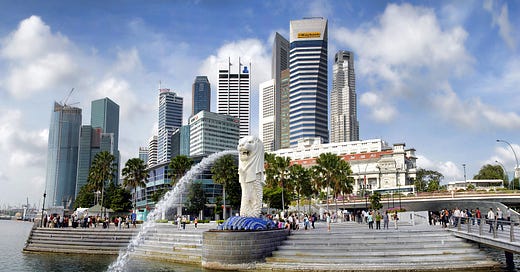Keppel Inks MOU to Develop Hybrid Renewable Energy System for Singapore
Keppel Infrastructure is joining forces with the National University of Singapore (NUS) and Nanyang Technological University (NTU) for a groundbreaking renewable energy study.
Keppel through its applied technology innovation arm, KepInfra Energy Transition Centre (KETC), NUS through its Solar Energy Research Institute of Singapore (SERIS), and NTU, through its Energy Research Institute (ERI@N), will take part in a joint study on the technological and economic feasibility of developing a first-of-its-kind floating hybrid renewable energy system (RES), for operations in Singapore.
The floating hybrid RES concept comprises modular offshore floating solar platforms with the flexibility to integrate other renewable energy technologies, such as ocean wave energy conversion systems, tidal energy turbines and paddles, as well as wind turbines.
The study will entail exploring the deployment of the system at a particular offshore test site in Singapore waters, subject to the relevant regulatory approvals. If successful, the parties plan to design and deploy a pilot system with at least 100 MW of renewable power generation capacity which can be scaled up over time.
After implementing the novel system in Singapore, the aim is to roll out the floating hybrid RES innovation to other regions in the Asia Pacific and beyond.
An offshore floating hybrid RES harnessing complementary energy sources such as solar, wind, and waves can provide continuous 24/7 power output, higher capacity factor and a lower cost of energy compared to single-source energy platforms.
It also reduces the amount of marine space required and increases efficiency through the concurrent use of critical electrical infrastructures and combined operation and maintenance methodologies.
Commenting on the study Cindy Lim, CEO of Keppel Infrastructure, said: “With limited land space in Singapore, moving into waters offshore presents opportunities to unlock the potential for more diversified renewable energy sources, thereby enhancing energy security and supporting Singapore’s transition to a greener energy mix.”
#renewableenergy





